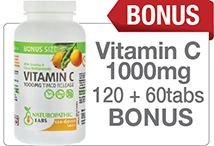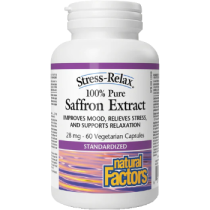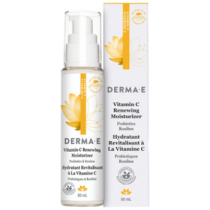- 1.9%
- Salicylic Acid
Purified Water, Glycerin, Hydroxypropyl Starch Phosphate (Sugar Starch), Salix Alba (Willow) Bark Extract, Epilobium Angustifolium (Canadian Willowherb) Extract, Aniba Rosodora (Rosewood) Wood Oil, Melaleuca Alternifolia (Tea Tree) Leaf Oil, Niacinamide (Vitamin B3), Organic Camellia Sinensis (Green Tea) Leaf Extract*, Aloe Barbadensis(Aloe Vera) Leaf Juice*, Caffeine, Hamamelis Virginiana (Witch Hazel) Extract, Lavandula Angustifolia (Lavender) Oil, Carrageenan (SeaweedDerived), Citric Acid,Potassium Hydroxide, Polysorbate 20, XanthanGum, Potassium Sorbate, Phenoxyethanol, Ethylhexylglycerin.
Format
 Liquid
Liquid
60ml
Dosage
Clean the skin thoroughly before applying. Cover the entire affected area with a thin layer one to three times daily. Because excessive drying of the skin may occur, start with one application daily, then gradually increase to two or three times daily if needed or as directed by a doctor. If bothersome dryness or peeling occurs, reduce application to once a day or every other day
Important Information
Derma E's products are free of parabens, phthalates, sodium lauryl sulfates, petrolatum, mineral oil, artificial colors and fragrances and are pH balanced, 100% vegetarian and cruelty free.
- Lightweight
- Fights against blackheads, breakouts and cystic acne
- Reaches deep into the skin to help unclog pores
- Clearer, healthier-looking skin
- Natural & Organic Skincare Solution
Related Videos
Articles by a naturopathic doctor.
Derma E, makers of natural skin care products: Anti-Aging Regenerative Day Cream, Very Clear Scrub and blemish treatment, Evenly Radiant Dark Circle Eye Creme, Hydrating Serum + Hyaluronic Acid and many more! Derma E has your skin care needs covered, naturally. Offering products for any age from teen to mature adult, Derma E can take care of your families skin.
Acne - the Natural Way
By: Articles by a Naturopathic Doctor (N.D.)
What is acne, any way?
Acne results in the development of pimples or pustules and comedone (blackheads and whiteheads) from blocked hair follicles and increased secretions in the sebaceous glands. Sebaceous glands produce sebum, which is a mixture of oil and wax. This sebum lubricates the skin and prevents water loss. Acne commonly appears on the face, upper back and upper arms and chest, as these are the locations of the highest concentration of sebaceous glands in the body.
Acne is a chronic skin condition that most often affects males and females in their adolescent years. Adult acne is an issue for some individuals, as well as hormone related acne for females (premenstrual acne, or acne during pregnancy). Although the problem is not life threatening, it can be disheartening. It can lead to lower self-esteem & a negative body image.
Types of Acne
Acne vulgaris (or cystic acne) is the clinical name for what most of the general public refers to as acne. It is effects the hair follicles and oil secreting glands of the skin. It manifests as blackheads (open comedones), whiteheads (closed comedones) or pimples/blemishes. Acne conglobate is a more severe form of acne that causes deep cysts and often causes significant scarring.
What causes acne?
Nutritional deficiencies (poor diet), food intolerances, exposure to environmental toxins, stress, genetics, hormonal imbalances, and some pharmaceutical drugs can cause acne.
Toxic overload
The skin is the largest organ in the body, and therefore plays a huge role (literally) in detoxification. One method the body has of excreting toxins is through sweat (through pores in the skin). These toxins can lead to irritation/inflammation of the skin, manifesting itself as acne. If there is a disruption in detoxification, as in the case of constipation, and toxins are allowed to build up in the body longer, these excesses can also lead to acne. There are some great detoxification tips in our article.
Are we OVER cleaning?
Hygiene does play a role in the development of acne, but not in the way you may think. Over-washing/stripping the skin of its natural oils can cause an excess of sebum, as our skin over compensate for the loss. Bacteria get stuck in the oil and the resulting immune reaction causes inflammation. Over washing and repetitive rubbing of the skin also weakens skin integrity, making it more vulnerable to bacteria and infection, and therefore acne.
Hormones!
Hormonal changes, including increased testosterone, estrogen and progesterone, cause acne in adolescence and premenstrual, as well as during pregnancy. These hormones, again, increase sebum production. Scarring of the skin is the only long-term consequence of acne and is usually due to picking at the skin.
Other Factors
Chronic or severe stress can exacerbate acne, as can personal care and household products. Many prescription medications, such as corticosteroids can also cause or aggravate acne. Humidity and hot temperatures, as well as sweating (due to hot weather, wearing fabrics that won’t allow the skin to breathe, and intense exercise regimes), can also play a role in acne development. An acidic internal environment may also exacerbate acne.
Conventional Treatment
There are several conventional treatments for acne that come with their share of negative side-effects. Accutane is a medication taken orally that, although proven to reduce the production of oil, can cause depression, nosebleeds and headaches. This medication can even lead to bone loss. Doctors take great care in prescribing Accutane to women of child-bearing age because of the pill’s dangerous side-effects for reproduction – a pregnancy test is typically administered. Topical treatments such as benzoyl peroxide and anti-biotic creams can cause more harm than good for sensitive, acne-prone skin, including painfully dry-skin and dependence to avoid increased sebum production. Both topical antibiotics and oral antibiotics (prescribed to kill acne-causing bacteria) affect the body’s regular digestive processes and can lead to improper immune and intestinal functioning resulting in chronic yeast and bladder infections. Allergic reactions to medications are commonplace and can even cause more acne.
Some Natural options
To fight acne topically tea tree oil, grapefruit seed extract and lavender essential oil are good choices. They can be added to hot water for a steam treatment or diluted and dabbed on the skin. There are also many cleansing products available with one or more of these antibacterial agents. Colloidal silver is an antibiotic that can be applied topically. Green clay masks also help to detoxify the skin and draw out acne blemishes.
Dietary changes and stress reduction are the main stays of acne prevention. All foods that promote detoxification of the body are essential. They include high-fiber foods and lots of water.
Avoid any foods that you are sensitive to Dairy products and foods high in refined sugar, are high among the food culprits of acne. Keep alcohol, caffeine, chocolate, fried foods, processed foods and iodized salt to a minimum. Eat foods high in zinc such as whole grains, sunflower seeds and raw nuts. Eat lots of fruit for its water content and alpha-hydroxy acids. Eat raw foods that contain oxalic acid like almonds, beets, cashews and chard. Individuals fighting acne may also benefit from an alkaline diet. See more on acid/alkaline balancing in the article.
Digestive enzymes, hydrochloric acid and probiotics to aid in the digestion and absorption of nutrients from food and along with the previously stated dietary recommendations can prevent/treat acne due to poor nutritional status. Vitamin A, E, zinc and selenium can also play a role in terms of boosting nutrients related and clearing skin. Essential fatty acids are important for skin repair. Using herbs such as vitex or supplementing with DIM, D- Glucarate or Sulforaphane may also help to treat premenstrual acne or acne related to hormone imbalance. Dandelion and milk thistle are excellent for supporting healthy detoxification, ultimately leaving the skin clearer and healthier!
What you can do to help maintain Acne - the Natural Way:
- Don't eat junk food
- Limit intake of bad fats
- Take supplements & herbs to help detoxify your body
- Ensure proper digestion
- Use good hygiene
- Exercise
- Reviews
- POST A NEW REVIEW
























